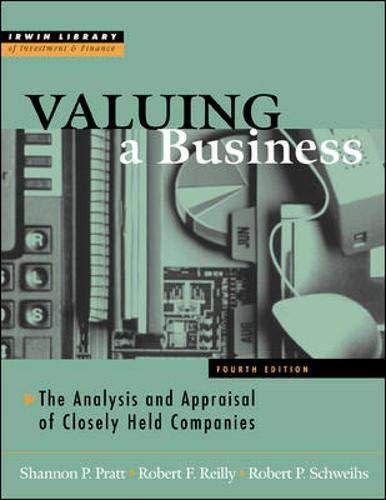Question
Run a regression of returns on your TSLA stock against returns on a market index. Use the regression to evaluate TSLA'S performance on a risk
Run a regression of returns on your TSLA stock against returns on a market index. Use the regression to evaluate TSLA'S performance on a risk adjusted basis during the period of the regression and its riskiness, relative to the market, and break down the risk into firm specific and market components. To run the regression, you will need to get data on past returns for your stock and for a market index.
Based on TSLA'S business mix, estimate a bottom up beta for TSLA'S operating businesses. You should be able to find the breakdown by business in your companys financial filings, though the details are richer in some than others. To get the beta for each business, you will need to find other publicly traded companies that operate primarily in that business, average their betas and correct for financial leverage and cash holdings.
If TSLA is a privately owned business and the owner is not diversified, adjust the unlevered beta that you have computed for the owners absence of diversification. (If the owner is completely undiversified, you will use a total beta. If partially diversified, you will use a beta between the unlevered market beta and the total beta).
Estimate the market value of debt outstanding in the company (see below), compute a market debt to equity ratio for the entire company, and use that ratio to compute a levered beta for the company. If you can allocate the debt across the different businesses, compute the debt to equity ratio and levered beta for each business. (If not, use the companys debt to equity ratio for all of the businesses). If you are working with a privately owned company, make a judgment on whether you want to use industry-average debt to equity or owner-specified target debt to equity ratio in computing the levered beta.
Use the levered betas, in conjunction with the risk free rate and equity risk premium, to compute costs of equity for each business and for the overall company.
Step by Step Solution
There are 3 Steps involved in it
Step: 1

Get Instant Access to Expert-Tailored Solutions
See step-by-step solutions with expert insights and AI powered tools for academic success
Step: 2

Step: 3

Ace Your Homework with AI
Get the answers you need in no time with our AI-driven, step-by-step assistance
Get Started


